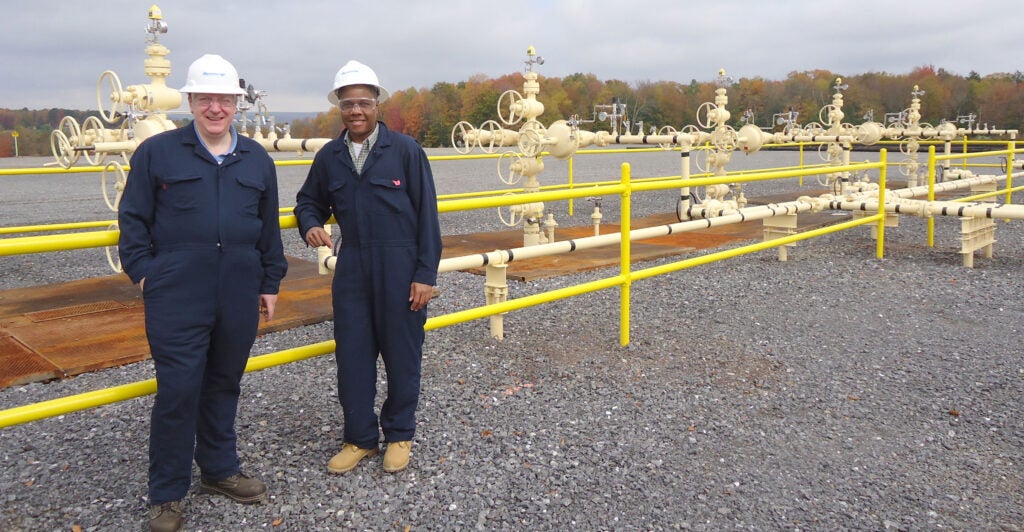How Harris Could Stop Fracking Without Banning Fracking
Deroy Murdock /
I believe Kamala Harris.
She told a CNN town hall in 2019, “There’s no question: I’m in favor of banning fracking.”
But she said in her Sept. 10 ABC News debate against former President Donald Trump: “I will not ban fracking.”
That second comment might be the only campaign promise she ever keeps.
How could these statements both be true?
Harris 1.0 can do as planned while Harris 2.0 keeps her word.
If voters buy her act, a President Kamala Harris could cripple fracking, if not stop it altogether, as she pledged in 2019. And she can do so without banning fracking, as she promised at the debate.
Kamala could leave America’s oil and gas industry perfectly free to submit Applications for Permits to Drill. But these permit applications could stretch from 30 to 100 pages now to, say, 300 pages under Harris-Walz.
Kamala could hike today’s $12,515 filing fee per permit application to $50,000—more than quadruple. Why not? She could finance her “free” giveaways by making frackers “pay their fair share” to file paperwork.
“What’s the rush?” Harris might ask. According to the Government Accountability Office, for permit applications the Bureau of Land Management “received from May 2016 through June 2019, overall review times decreased from 196 days to 94 days”—down 52%, mainly under Trump. But with public health, safety, and Earth’s delicate climate at stake, why not spend at least six months with each application—just in case?
The Bureau of Land Management scrutinizes permit applications on federal soil. But it might miss something. So, each application could traverse other agencies and even Cabinet departments, to double check and confirm that everything is hunky-dory. America cannot be too careful.
The Justice Department could certify that no fracker ever has faced a federal criminal indictment, conviction, or U.S. civil complaint.
The Labor Department could verify that no fracking company’s corporate officers or board members ever violated a federal labor regulation, angered a union boss, overlooked a worker, or forgot to buy flowers on Administrative Professionals Day (or as real men call it: National Secretaries Day).
The Equal Employment Opportunity Commission could ensure that every driller’s workforce lacked racial bias and perfectly reflected America’s precise demographic profile, per the Census Bureau. If, for instance, Frack-O-Rama Inc.’s payroll is not 58.4% white, 19.5% Hispanic, 13.7% black, 6.4% of Asian descent, 1.3% American Indian, and 0.3% Native Hawaiian, then this racist enterprise better start explaining—macht schnell!

Columnist Deroy Murdock (right) and Lord Borwick of Hawkshead, a member of the British House of Lords, visit Anadarko Petroleum’s hydraulically fractured natural gas field in north-central Pennsylvania in October 2013. (Photo: Deroy Murdock)
After this initial scrutiny, frackers with what Harris repeatedly calls “dreams, ambitions, and aspirations” better prepare for deeper probes. Environmental impact reports are inescapable: Applicants must prove that they love Mother Nature.
Next, Harris could require that explorers show that they would not disturb the shards of pottery or remains of, say, Nevada’s Te-Moak and Winnemucca tribesmen. Likewise, the bones of Louisiana’s deceased slaves should remain untouched. And how awful if “frack, baby, frack” pounded dinosaur fossils into dust.
Scholars at the Smithsonian museums of the American Indian, African American History, and Natural History could inspect every application and attest that no such horrors would unfold.
Despite such reassurances, Frack-O-Rama Inc. still could be told: “The Harris-Walz administration has determined that your permit application requires further study. Please complete, swear, and notarize these 12 new forms, under penalty of perjury. Don’t call us. We’ll call you.”
Frackers eventually would learn that persistence is futile. This game-changing technology would run out of steam.
Thus, Harris 1.0 can keep her old commitment to the center-left, and Harris 2.0 can honor her new vows to the center-right.
This scenario could transpire just as America needs more fossil fuel—especially natural gas—to generate the electricity to power millions of Harris-mandated EV cars and trucks and the square miles of server farms that cryptocurrency, blockchain, and artificial intelligence require to blossom.
Before any of this unfolds, however, voters—especially those in frack-friendly Pennsylvania—should ponder what Power the Future’s Larry Behrens asked in The Hill: “Was Vice President Kamala Harris lying about her position on fracking in 2019, or is her campaign lying now?”
We publish a variety of perspectives. Nothing written here is to be construed as representing the views of The Daily Signal.
